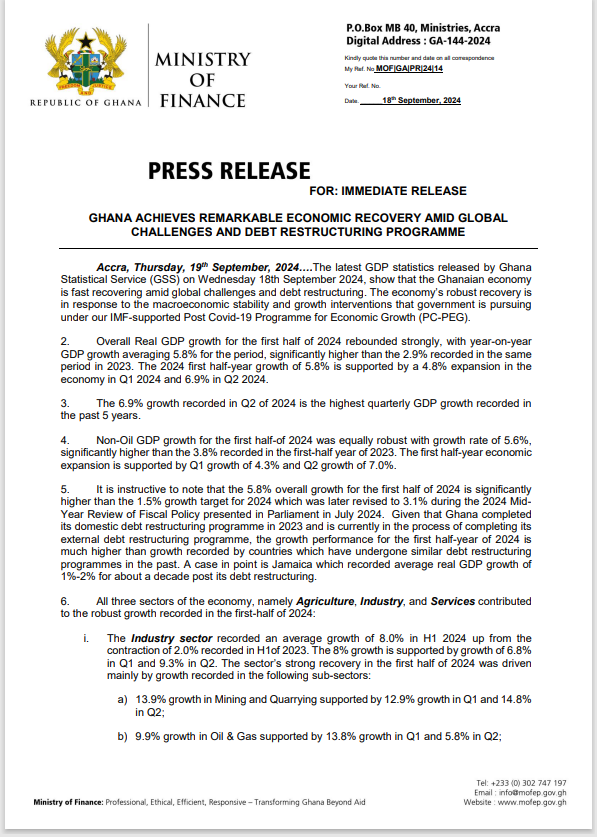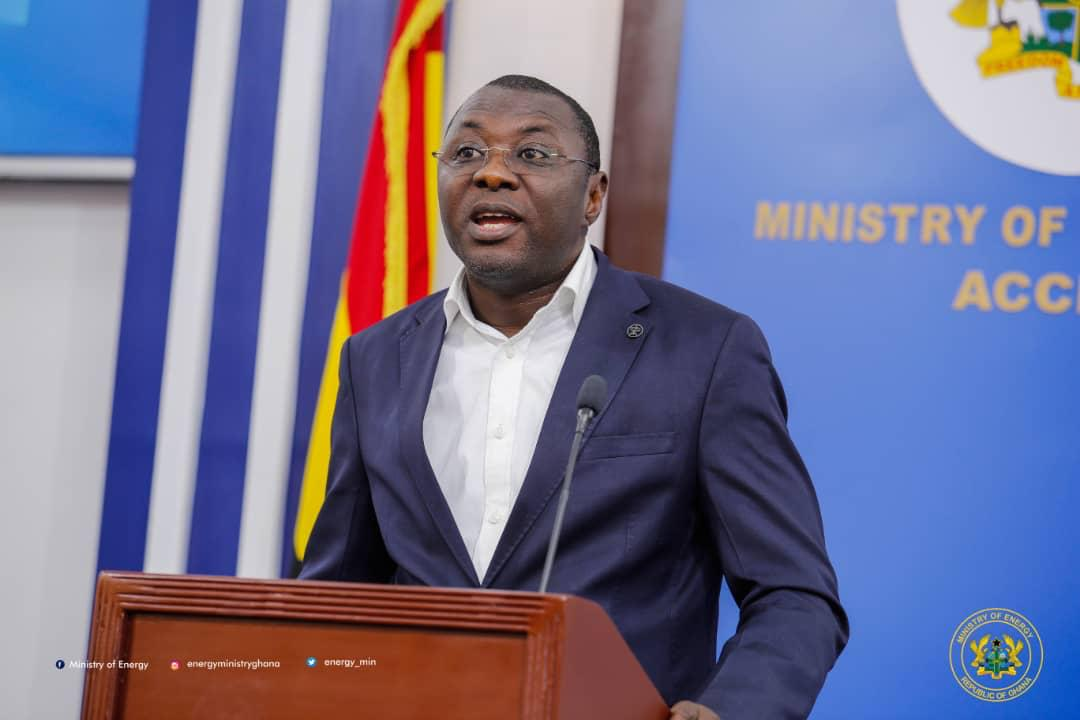Ghana’s economy is bouncing back strongly, with the country’s Gross Domestic Product (GDP) showing a remarkable 6.9% growth in the second quarter of 2024, up from 4.7% in the first quarter. This impressive growth is a testament to the government’s efforts to stabilize the economy, despite global challenges and ongoing debt restructuring. According to the Ministry of Finance, the economy’s robust recovery is attributed to the macroeconomic stability and growth interventions pursued under the IMF-supported Post Covid-19 Programme for Economic Growth (PC-PEG).
The overall real GDP growth for the first half of 2024 averaged 5.8%, significantly higher than the 2.9% recorded in the same period in 2023. This growth is supported by a 4.8% expansion in the economy in Q1 2024 and 6.9% in Q2 2024, with the latter being the highest quarterly GDP growth recorded in the past five years. Non-oil GDP growth was equally robust, with a growth rate of 5.6%, surpassing the 3.8% recorded in the first half of 2023.
The Ministry of Finance noted that the 5.8% overall growth for the first half of 2024 exceeded the initial 1.5% growth target for 2024, which was later revised to 3.1% during the 2024 Mid-Year Review of Fiscal Policy. Ghana’s economic performance is impressive, especially considering the country completed its domestic debt restructuring program in 2023 and is currently finalizing its external debt restructuring program.
In fact, Ghana’s growth performance surpasses that of countries that have undergone similar debt restructuring programs in the past, such as Jamaica, which recorded an average real GDP growth of 1-2% for about a decade post-restructuring. The Ministry highlighted that all three sectors of the economy – Agriculture, Industry, and Services – contributed to the robust growth recorded in the first half of 2024.
This positive economic trajectory is also reflected in the country’s declining inflation rate, which dropped from 54% in December 2022 to 23% in December 2023. The Ghanaian authorities have made significant progress under the IMF-supported program, with the economy showing signs of stabilization.
The government’s commitment to fiscal discipline and structural reforms has been instrumental in achieving this growth. The Ministry of Finance emphasized that the authorities are working hard to expand social protection programs, including doubling benefits under the Living Empowerment Against Poverty program.
Ghana’s economic recovery is also expected to be driven by private sector development, with the government implementing policies to improve the business environment. The country’s debt restructuring efforts have been successful, with the domestic debt voluntary exchange completed and agreements reached with official bilateral creditors.
The IMF has praised Ghana’s economic reform program, noting that it is delivering on its objectives. The Fund’s Resident Representative in Ghana highlighted that the authorities’ commitment to macroeconomic stability and structural reforms has been crucial in achieving this growth.
As Ghana continues on its path to economic recovery, the government remains committed to maintaining fiscal discipline and implementing policies to support private sector growth. With the economy showing strong signs of resilience, Ghana is poised for sustained growth and prosperity.
Ghana’s economic recovery is a testament to the government’s prudent policy implementation and commitment to macroeconomic stability. As the country continues to navigate global challenges, its robust growth performance is a positive indicator of its future prospects.

